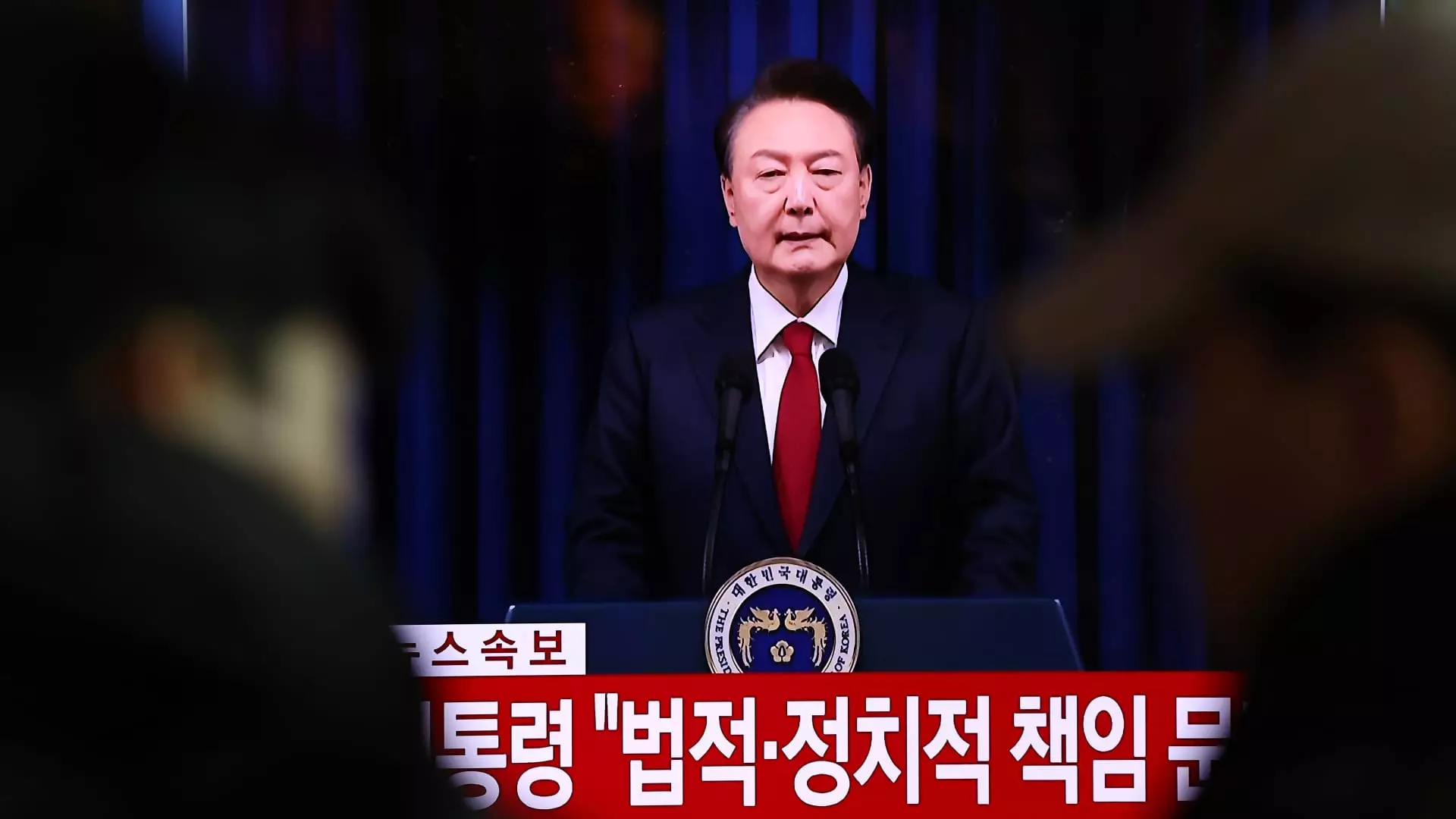On a tumultuous Saturday, South Korean President Yoon Suk Yeol faced impeachment due to a botched attempt to impose martial law, an unprecedented act in the nation’s recent political history. The impeachment vote, spurred by his controversial actions taken on December 3, highlights the growing unrest not only within the political sphere but also among the general populace. This move comes after a failed impeachment motion earlier in December that did not achieve the necessary support in the National Assembly, where dissenting members of Yoon’s People Power Party abandoned the vote. The political backing for Yoon has noticeably diminished, creating an environment ripe for the opposition to capitalize on growing discontent.
Shifts in Political Alliances
Yoon’s previously solid support from within his party began to crumble after a significant statement from People Power Party’s leader, Han Dong-hoon. His endorsement of the impeachment call signals a fundamental shift in the political alliances that have characterized South Korean politics. The response from various factions, especially the opposition, was swift and unequivocal, demonstrating their readiness to hold Yoon accountable for his governmental conduct. The context of Yoon’s actions provides clarity on the motivations of lawmakers who feel increasingly empowered to challenge the authority of an administration whose standing has substantially faltered.
The attempt to impose martial law, albeit momentarily, raises questions regarding Yoon’s grasp on power and his approach to governance. The justification given—citing the need to protect the constitutional order and combat pro-North Korea sentiments—does not resonate favorably with a populace desiring democratic stability and a commitment to human rights. When he quickly rescinded the martial law decision within six hours, the possibility that this could become a recurring theme in his presidency lingered ominously in the air. The implications of such measures have sown seeds of fear concerning the potential erosion of civil liberties, igniting widespread protest.
Public Response and Falling Approval Ratings
In the wake of the martial law declaration and subsequent backlash, President Yoon’s approval ratings plummeted to a startling 17.3%. The broad disapproval from citizens and opposition lawmakers alike signals a deeply entrenched dissatisfaction with his administration. While Yoon initially appeared unyielding, vowing to “fight to the end,” the swelling calls for his resignation emphasized a government in crisis. The reality that he is now barred from international travel adds another layer of gravity to his predicament, highlighting how rapidly the tides of political fortune can turn, especially in an elective governance system.
This impeachment episode is reminiscent of South Korea’s political history, which has seen two previous presidents—Roh Moo-hyun in 2004 and Park Geun-hye in 2016—removed through similar proceedings. Such historical patterns underline the volatility that defines South Korean political culture, often marked by sweeping changes in public sentiment and governance. With the precedent of impeachments looming, the current climate evokes serious reflection on the stability of the country’s political framework and the potential repercussions on public trust in elected officials.
Investors’ Perspective Amidst Uncertainty
Despite the political instability, market observers strive to see beyond the chaos. According to John Woods of Lombard Odier, investors are cautiously optimistic about South Korea’s economic robustness, particularly given its significant position in the technology and burgeoning AI sectors. As the International Monetary Fund projects a 2.5% economic growth rate for the nation this year, the situation prompts a deeper analysis of the potential for recovery, emphasizing the resilience of local earnings despite the ongoing political strife. The notion that the turmoil may offer a temporary distraction from the underlying strengths of South Korea’s economy reflects the complex relationship between politics and market performance.
President Yoon Suk Yeol’s impeachment encapsulates a moment of profound political turmoil for South Korea. It reiterates the challenges faced within the currents of democracy, punctuated by an electorate that demands accountability and ethical governance. As the country braves this storm, the road ahead remains uncertain, with looming electoral prospects and a collective public yearning for stability demanding attention. The evolution of South Korea’s political landscape in the wake of this crisis will ultimately test the resilience of both its democratic institutions and its economy.

Leave a Reply